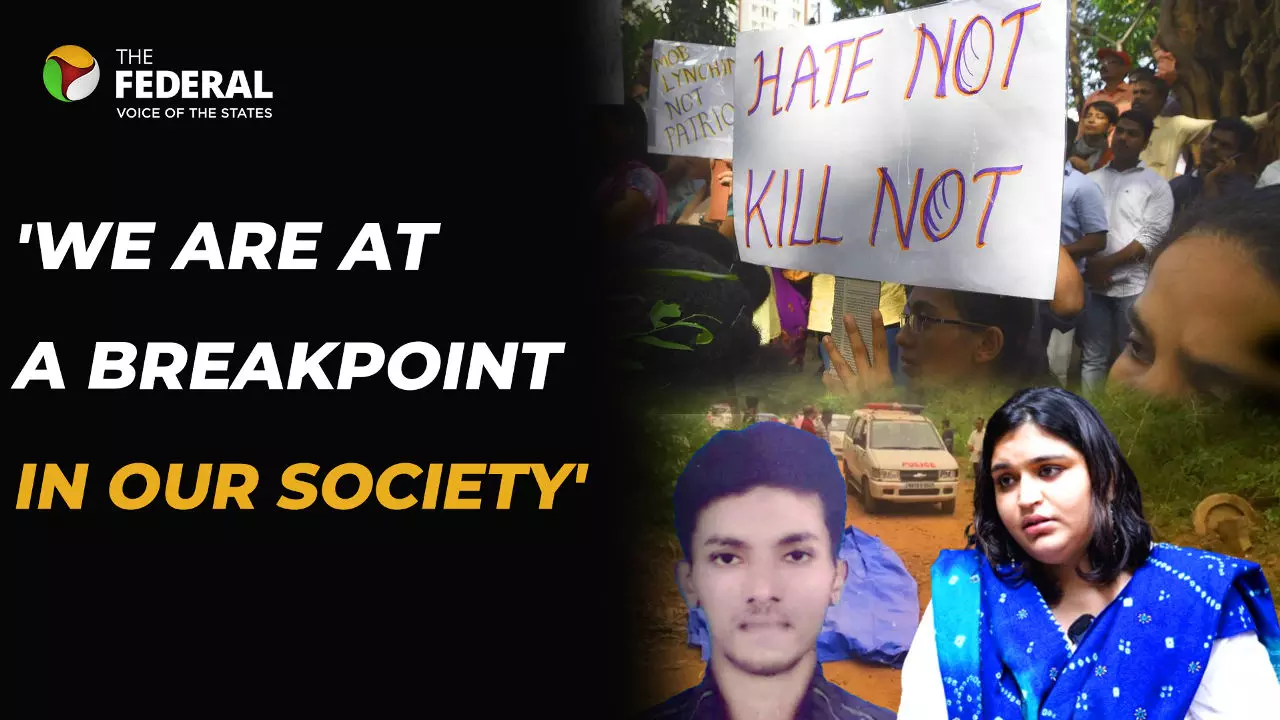
We are at a breakpoint in our society
Mohammed Ashraf's 'lynching' in Mangaluru | Activist Manavi speaks up
People who organised the cricket game simply went back to playing cricket after the horrific incident, says activist Manavi

On April 27, Mohammed Ashraf was allegedly lynched in Kudupu, a village on the outskirts of Mangaluru, during a local cricket match. The report published by the People’s Union for Civil Liberties (PUCL) called his murder a “hate crime”. Activist Manavi speaks exclusively to The Federal and sheds light on the lynching.
What is your observation on the reported lynching of Mohammed Ashraf?
The fact-finding report we released is from PUCL Karnataka, the Association for Protection of Civil Rights (APCR), and ILAJ Karnataka. The report is titled 'Lost Fraternity: A Mob Lynching in Broad Daylight, Betrayal of the Promise of the Constitution. When our fact-finding team visited Mangaluru, what we saw was extremely shocking.
We found three things. Firstly, Mohammed Ashraf was lynched because, at the cricket ground, they identified him as a Muslim based on his appearance and the way he spoke. After that, he was lynched. Shockingly, people who organised the cricket game simply went back to playing cricket after the incident. What kind of humanity and society have we become where a life can be extinguished like that, and people return to their game?
Secondly, the local police — including Vamanjur Rural Police Station, the DCP, ACP, and Commissioner of Police—were well aware of what had happened. They visited the crime scene the same day and saw the body, which bore wounds as if a knife had been thrust into the flesh. Despite this, they did not register an FIR; they filed only an unnatural death report. This allowed at least six accused to secure bail from the trial court’s vacation bench.
Thirdly, there is such fear in the local community that despite many people witnessing the crime at the cricket match, no one is willing to come forward. It’s been two months, and the family has still not received victim compensation, despite the Supreme Court’s Tehseen Poonawalla judgment and a 2023 Karnataka government order mandating it.
We demand that compensation be given immediately, a special public prosecutor be appointed due to the police’s lackadaisical investigation, and the probe be transferred to either the CID or an SIT. While we acknowledge the new police commissioner may have improved things, trials take years, and we fear communalization will hamper justice.
How do you respond to such an inhumane act?
We are at a breaking point as a society. If the state and we as people don’t introspect and work to change this, we are heading down a very dangerous path.
Who is Ravindra Nayak? Can you shed light on his alleged involvement in this case?
We’ve been informed in our fact-finding that Ravindra Nayak was present at the crime scene and was one of the organizers. We even have a video showing him leaving his house wearing a cricket jersey that day. However, the extent of his involvement in the lynching is something the police must investigate.
Because of the prevailing fear, no local people were willing to speak to us. We’ve also been told that he may have been involved in tampering with and destroying evidence related to the lynching. The veracity of this must be verified. If locals can share their concerns with human rights organizations, then the police are duty-bound to question them and issue a show-cause notice to get their statements. Ravindra Nayak is clearly a person of interest in this investigation.
Can you tell us more about the victim, Mohammed Ashraf?
Ashraf was very close to his mother. He didn’t have material possessions or a house. He lived the life of a rag-picker, and whatever he earned, he gave to his mother. He always asked her if she had eaten or drunk water—that was his primary concern. Even those to whom he sold scrap say the same about him.
He was a very simple person. His mother says he loved cricket, which could be why he went to the ground that day. One of the most important things she has said is that justice must be done for Ashraf.
Were ‘Pakistan Zindabad’ slogans uttered?
The fact-finding committee found no basis for the claim that ‘Pakistan Zindabad’ was shouted. Who informed the Home Minister that such slogans were raised is a big question because it’s completely baseless. We don’t know where this claim originated.
In the complaint, the complainant—who was a cricket player in the mob—says, using a Kannada grammatical structure, that he could have heard someone say ‘Pakistan-Pakistan’. It’s unclear whether the accused or Ashraf said it. Neither the FIR nor the complaint provides clarity on this.
Even if such a slogan were raised, as the Supreme Court ruled in Balwant Singh v. State of Punjab, shouting ‘Pakistan Zindabad’ does not amount to sedition, hate speech, or a crime. To lynch someone on this pretext, and for the Home Minister to communalize the issue without any basis, has derailed the investigation and harmed the family. When they came to collect Ashraf’s body, they were terrified.
The content above has been generated using a fine-tuned AI model. To ensure accuracy, quality, and editorial integrity, we employ a Human-In-The-Loop (HITL) process. While AI assists in creating the initial draft, our experienced editorial team carefully reviews, edits, and refines the content before publication. At The Federal, we combine the efficiency of AI with the expertise of human editors to deliver reliable and insightful journalism.

